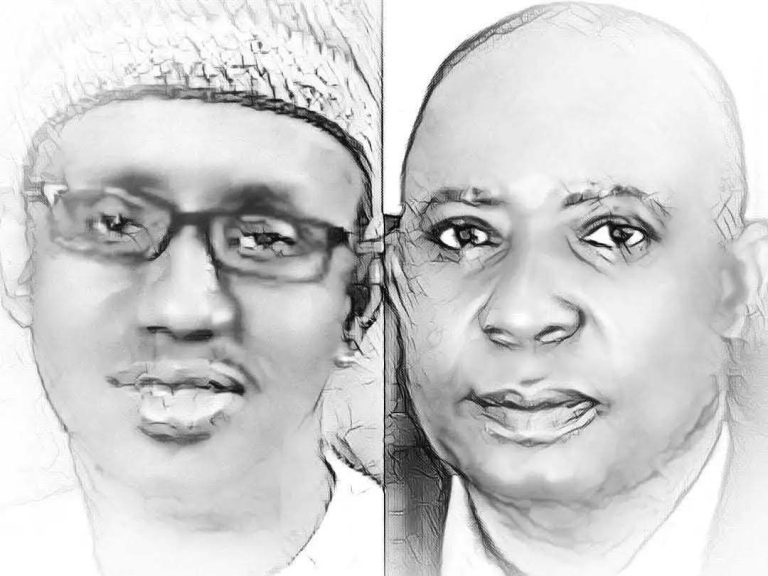By its very nature, journalism thrives on controversy, and many media outlets consider sensitive or even classified information the holy grail, often labeling it as “Breaking News” or “exclusive investigative reporting.” However, communication scholars and public relations professionals have long advocated for responsible journalism, especially when national interests are at stake—through dialogue, discretion, and, in some cases, confidentiality.
There are indeed circumstances where a better understanding between the media and security services is crucial, particularly when the information in question has the potential to endanger lives or undermine national stability. I have both witnessed and facilitated engagements where critical institutions found it necessary to confidentially brief trusted and responsible editors on highly sensitive matters, whether relating to security operations or economic stability.
I recall such instances vividly during the era of Mr. Femi Adesina as President of the Nigerian Guild of Editors (NGE) and Major General Chris Olukolade as Chairman of the Forum of Spokespersons of Security and Response Agencies (FOSSRA). As Editor-in-Chief of The Sun Newspapers and Director of Defence Information, respectively, they led frank, transparent, and impactful sessions where editors were shown visual and documentary evidence of national security challenges. Some editors were visibly shaken—some even shed tears—at the disturbing footage of atrocities committed by terrorists. At other times, they celebrated triumphs of the Nigerian military with equal emotion. Yet, not once was such sensitive information leaked or published in breach of trust.
Today, the current National Security Adviser (NSA), Mallam Nuhu Ribadu, similarly acknowledges the strategic role of the media and encourages security chiefs to engage top editors in private, interactive sessions.
In such sessions, the editors have been discreetly briefed—often with graphic evidence—on successful counterterrorism operations and the ultimate sacrifices of fallen troops. The meetings underscore the essential bond of trust between the media and security institutions.
Meanwhile, these engagements are often conducted under mutually agreed-upon conditions—either off the record, under the Chatham House Rule, or with a confidentiality clause. These protocols help maintain the delicate balance between press freedom and national security.
To clarify: when a conversation is off the record, the information shared is not to be published or attributed under any circumstances. The Chatham House Rule permits the use of shared information but forbids identifying speakers or their affiliations. Unfortunately, even senior officials sometimes fail to understand these distinctions.
A confidentiality clause, in more formal terms, is a legal agreement that prohibits the disclosure of certain information. Journalists, as custodians of public trust, are often expected to protect confidential sources and sensitive information.
That is why the recent suspension of veteran editor Steve Osuji by the Nigerian Guild of Editors (NGE) has sparked significant concern. Osuji was suspended for one year for allegedly breaching the “off the record” rule by publishing an article based on a keynote address delivered by the Director-General of the Department of State Services (DSS), Mr. Adeola Oluwatosin Ajayi, at the NGE’s 25th Biennial National Convention in Enugu.
According to Eze Anaba, the President of the NGE, there was a clear understanding that the DG’s address was not to be made public. Nevertheless, Osuji reportedly published content from the session on his social media handles. The NGE apologized to the DSS and its DG for the breach and reiterated its commitment to ethical standards, while allowing Osuji the right to appeal the decision.
Though the Revised Code of Ethics for Nigerian Journalists (2022)—dealing with Sources/Privilege/Non-Disclosure—does not mention “off the record” explicitly, it affirms the universally accepted principle of confidentiality in journalism.
In response, Osuji challenged the NGE’s decision, stating that DSS operatives had allowed journalists to attend and that a compère only announced the address as confidential after it had commenced. Expressing concern over what he called “unprecedented gagging,” he published an article questioning the DSS’s approach and broader issues around insecurity. When asked by an NGE executive to delete the article, Osuji refused, claiming national security must be questioned when necessary. He accused the Guild of allowing the convention to be “hijacked” and declared that he would rather be suspended than remain part of what he called an “efulefu Guild,” which, in his view, had failed in its watchdog role.
In fairness to all parties—especially the DG DSS and the editors—the matter could have been resolved internally, with dialogue rather than disciplinary action. If anything, the DG DSS has shown professionalism and restraint in his conduct and approach to media relations since his appointment about two years ago. He has also emphasized due process, discouraged arbitrary arrests, and encouraged transparency, even allowing other agencies to take credit for joint successes.
While the DSS may not publicly outline its communication policy, its leadership has repeatedly demonstrated an intention to build mutual trust with media stakeholders. Private editor briefings, such as the one in Enugu, are intended to foster understanding, not confrontation. The aim is to offer highly sensitive, sometimes exclusive, briefings to responsible media professionals who appreciate the gravity of the information shared.
This culture of behind-the-scenes media engagement dates back to the administration of President Goodluck Jonathan, when then-NSA Sambo Dasuki supported media-security cooperation. Under his directive, editors were shown live video footage of terrorist atrocities and strategic military preparations—so they could responsibly shape their reporting and avoid unnecessary public panic.
While I wish my senior colleague had taken down the article in the national interest when requested, I believe a one-year suspension is overly harsh. I hope this issue can still be resolved amicably. Our security services are becoming more professional and collaborative with members of the Fourth Estate. They need—and deserve—constructive support.
Finally, for any engagement that requires confidentiality, all parties must be informed beforehand about the terms: whether it is off the record, under the Chatham House Rule, or subject to a confidentiality clause. These distinctions matter, not just for ethics, but for the integrity of public discourse and national security.
Yushau A. Shuaib is the author of Award-Winning Crisis Communication Strategies. yashuaib@yashuaib.com


